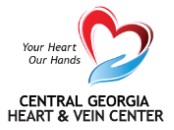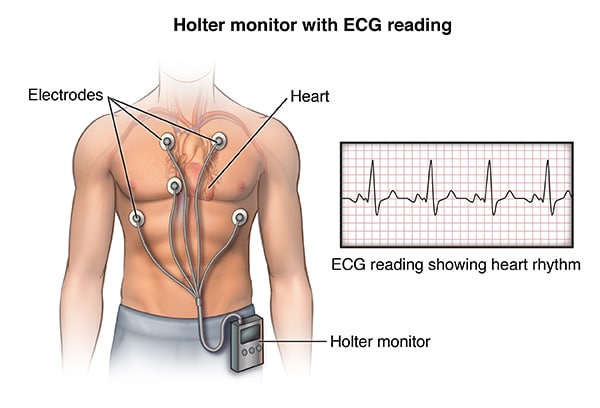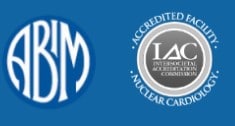Holter & event monitors record your heart’s electrical signals. At Central Georgia Heart Center, we use Holter monitoring to see if a patient has an arrhythmia that is affecting heart beat pace and regularity. In short, doctors are looking to see if your heart is not beating regularly.
Holter monitoring can also be used to detect a silent myocardial ischemia. This is a condition in which your blood is lacking oxygen. The term silent means, there are no symptoms, at least not yet.
Once diagnosed, Holter monitoring on a regular basis tells cardiologists if their heart care is working.
How does a Holter Monitor Work?
Similar to an EKG, it common for looking at heart rhythm issues. But unlike an EKG, Holter monitors are worn throughout your everyday activities. They provide much more thorough results and can catch more elusive irregularities in cardiac patients.
Oftentimes, our doctors are looking for issues that occur during a specific event like sleep, work, or potentially exercise. There are 2 types of monitors that we use, one is Holter which records the entire time and the other is an event monitor which only records at certain times.
How the Test is Performed
During Holter monitoring, electrodes are placed on a patient’s chest which links to a recording monitor. It is battery operated and usually carried around your waist of the neck. During the time it’s on, your doctor will ask you to keep a 24-48 hour diary of your activities to help correlate electrical rhythms to times of day or events.
Preparing Yourself For Holter Monitoring
You don’t need to do any special preparation for the test. Your doctor will give your clear instructions during your visit. It is a painless process and simply requires you to carry a small monitor around for the duration.
Why/When Would I Need A Holter Monitor?
- After a heart attack
- To diagnose heart rhythm problems
- When starting a new heart medicine
It may be used to diagnose:
- Atrial fibrillation/flutter
- Multifocal atrial tachycardia
- Palpitations
- Paroxysmal supraventricular tachycardia
- Reasons for fainting
- Slow heart rate (bradycardia)
- Ventricular tachycardia





